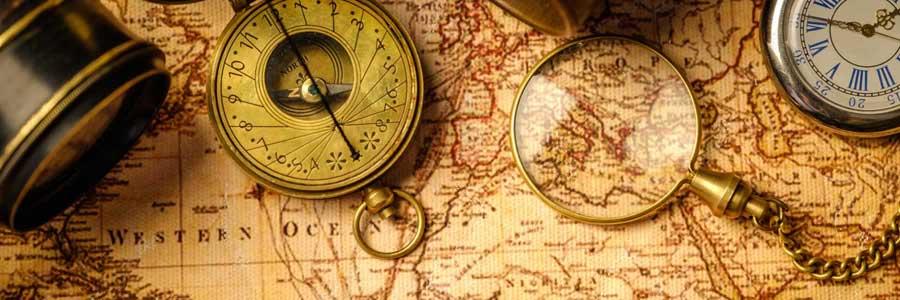04 Jun 2021 - {{hitsCtrl.values.hits}}

The week from May 27 onwards was significant for students of history in that several leaders of Western countries including former colonial countries have apologised for or regretted the past crimes committed by their ancestors against the indigenous people of their countries or former colonies. It is more important since these former colonial countries have been champions of human rights even before some of them said sorry for the crimes committed by their ancestors decades or centuries ago.
including former colonial countries have apologised for or regretted the past crimes committed by their ancestors against the indigenous people of their countries or former colonies. It is more important since these former colonial countries have been champions of human rights even before some of them said sorry for the crimes committed by their ancestors decades or centuries ago.
French President Emmanuel Macron has on May 27 asked Rwandans to forgive France for its role in the 1994 Rwandan genocide in which about 800,000 ethnic Tutsis and moderate Hutus died.
“Only those who went through that night can perhaps forgive, and in doing so give the gift of forgiveness,” Macron said at a genocide victims’ memorial in the Rwandan Capital Kigali, where more than 250,000 victims are buried. “I hereby humbly and with respect stand by your side today. I come to recognise the extent of our responsibilities” he said.
"Colonialism is not an accident. It was the inevitable outcome of the emergence of Capitalism which pushed the large scale industries to seek more and more raw materials and markets"
Germany, on May 28, officially acknowledged committing genocide during its colonial occupation of Namibia, and announced financial aid worth more than €1.1bn ($1.34bn). German Foreign Minister Heiko Maas said his country was asking Namibia and victims’ descendants for forgiveness.
On May 27, the bodies of 215 children were discovered in a burial site at the grounds of the Kamloops Indian Residential School in the Canadian province of British Columbia using new, ground-penetrating technology.
The residential school system, which operated from the 1880s to the late 1990s, was set up by the Canadian government and administered by churches to assimilate indigenous children into Canadian society.
Referring to the discovery of the bodies Canadian Prime Minister Justin Trudeau said in a tweet last Friday “The news that remains were found at the former Kamloops residential school breaks my heart - it is a painful reminder of that dark and shameful chapter of our country’s history. I am thinking about everyone affected by this distressing news. We are here for you.” Canada’s minister of indigenous relations, Carolyn Bennett, said residential schools were part of a “shameful” colonial policy. The government was committed to “memorialising those lost innocent souls”, she said.
 Meanwhile, Joe Biden has become the first sitting President of the United States to visit the site in Tulsa, Oklahoma, where hundreds of Black Americans were killed by a white mob in 1921, saying the US must learn from one of the worst episodes of racist violence in the country’s history. “This was not a riot, this was a massacre,” Biden said in a speech to survivors and their descendants on June 1. “(It was) among the worst in our history – but not the only one and, for too long, forgotten by our history.
Meanwhile, Joe Biden has become the first sitting President of the United States to visit the site in Tulsa, Oklahoma, where hundreds of Black Americans were killed by a white mob in 1921, saying the US must learn from one of the worst episodes of racist violence in the country’s history. “This was not a riot, this was a massacre,” Biden said in a speech to survivors and their descendants on June 1. “(It was) among the worst in our history – but not the only one and, for too long, forgotten by our history.
The genocide against the Tutsis by the Hutus, the majority tribe in Rwanda was sparked by the downing on 6 April 1994 of a plane carrying Rwandan President Juvénal Habyarimana and his Burundian counterpart Cyprien Ntaryamira, a fellow Hutu. Over 800,000 Tutsis and moderate Hutus were killed in about hundred days by Hutu militiamen. On 22 June the UN authorised the deployment of French forces in south-west Rwanda, in what was called Operation Turquoise. However, French troops made no sufficient or genuine effort to stop the genocide.
In March, a French expert commission found that France under the late President François Mitterrand had borne “heavy and overwhelming responsibility” for the genocide but had not been complicit. Mitterrand had close ties to former Rwandan Hutu President Habyarimana. The report said France had been “blind” to genocide preparations.
Although Macron said that he came to “recognise the extent of our responsibilities,” he denied that France “was an accomplice” to the genocide. Then the question remains as to what France was responsible for. Inaction equates complicity.
Last week’s statement by Germany on the genocide in Namibia came after five years of negotiations with Namibia - which was under German occupation from 1884 to 1915. The genocide began in 1904 after a Herero and Nama rebellion over German seizures of their land and cattle. BBC said the head of the military administration there, Lothar von Trotha, called for the extermination of the population in response. A declaration on genocide is expected to be signed by the German foreign minister in the Namibian capital, Windhoek, next month before being ratified by each country’s parliament, German media reports say. President Frank-Walter Steinmeier is then expected to travel to the country to officially apologise.
In Canada, After Europeans established permanent settlements in the 17th and 18th centuries, indigenous communities were severely threatened by colonial forces. They lost an estimated 98 per cent of their land and were forced to live in isolated reserves.
The residential school system in Canada forcibly separated more than 150,000 First Nations children from their families Between 1831 and 1996, in order to assimilate them into the Euro-Canadian and Christian ways of living. They were forbidden to acknowledge their indigenous heritage and culture or to speak their own languages. Kamloops Indian Residential School was the largest in the residential system. A commission launched in 2008 to document the impacts of this system found that large numbers of indigenous children never returned to their home communities.
"These former colonial countries have been champions of human rights even before some of them said sorry for the crimes committed by their ancestors decades or centuries ago"
In 2008, then Prime Minister Stephen Harper publicly issued an apology, on behalf of the Government of Canada, to all indigenous people acknowledging the country’s role in the residential school system.
The incident for which Biden apologised took place on May 31 and June 1, 1921. During the two horrific days White residents in Tulsa shot and killed as many as 300 Black people and burned and looted homes and businesses, after a white woman accused a Black man of assault, an allegation that was never proven. The rampage devastated the African American community of Greenwood, at the time so prosperous that it was called Black Wall Street. Historians say 10,000 people were left homeless.
Similar apologies were extended by Queen Elizabeth for colonial injustices suffered by the Maori people in New Zealand and President Bill Clinton in 1993 for the U.S. role in the 1893 overthrow of the Hawaiian monarchy.
Those massacred men and women in various countries by these and other powerful countries and communities definitely won’t come back to life again due to these apologies or regrets. Nor the social status of the communities perished or annihilated would be restored. Nor there would be any assurance of recurrence of such incidents. Nor would the world order would change. It would continue to be a system that would unofficially recognise the principle of might is right. However, given the race relations in the world, leaders must have great courage and bravery to admit their past crimes against another community, as their action might create rifts within their own communities and boomerang on their political life and future. It also might question the justifiability of some nations in the American Continent.
Nevertheless, the colonialism is not an accident. It was the inevitable outcome of the emergence of Capitalism which pushed the large scale industries to seek more and more raw materials and markets. On the other hand, the colonies too benefited from the process in that they were able to abolish the feudal systems and embrace the more advanced capitalist system at least lagging behind the industrialised countries. They were introduced to more advanced legal systems and ways of life.
Yet, mass killings genocides and inhuman brutalities in the past cannot be justified.
29 Nov 2024 57 minute ago
29 Nov 2024 1 hours ago
29 Nov 2024 1 hours ago
29 Nov 2024 1 hours ago
29 Nov 2024 2 hours ago